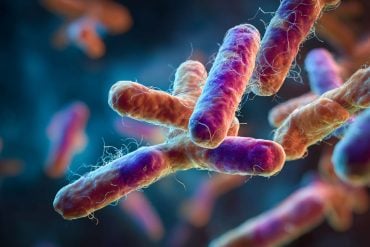Summary: New research shows that meaning in life and self-efficacy—the belief in one’s ability to succeed—are critical for well-being, regardless of sex. Men reported higher levels of passion and self-efficacy, but both men and women were otherwise similar in grit, mindset, and emotional balance.
The strongest link to flourishing was the combination of purpose and confidence in one’s abilities. These findings highlight the importance of nurturing self-efficacy through mentorship, challenges, and opportunities for mastery.
Key Facts
- Self-Efficacy Advantage: Belief in one’s ability to succeed strongly predicts well-being.
- Shared Similarities: Men and women show similar grit, growth mindset, and flourishing.
- Meaning Matters: A sense of purpose is the strongest factor tied to feeling good about oneself.
Source: NTNU
Emotions are complicated things.
Researchers have found some differences between men and women, but basically the same factors play the biggest part in whether we feel good about ourselves.
“We investigated differences between the sexes and the relationships between factors that influence participants’ motivation and well-being,” said Professor Hermundur Sigmundsson at the Norwegian University of Science and Technology (NTNU’s) Department of Psychology.
He has spent many years studying what it takes for people to achieve their goals, and in this context, how the sexes differ and what they have in common.
This time, however, he and his colleagues have approached the topic from a broader perspective.
Their findings have now been published in Acta Psychologica.
Men have greater passion and belief in their ability to succeed
The researchers found that men tend to have greater belief in their ability to succeed than women do. They call this ‘self-efficacy’. Previously, they have found that men are also more passionate than women.
“The new study supports our previous findings: men are more passionate,” said Sigmundsson.
Despite the differences in passion and self-efficacy, the sexes are remarkably similar in most areas.
The researchers found no differences between the sexes when it comes to grit, growth mindset (attitude, belief in growth), sense of meaning in life, how well people function in daily life over time (flourishing), or how they are affected by temporary positive and negative emotions.
But some things stand out.
Meaning in life and self-efficacy are fundamental
According to the researchers, the various factors all influence each other, but the relationships are very complicated.
“We find the strongest association between feeling that life has meaning and feeling good about oneself. Self-efficacy is also very important, regardless of sex. Having a high level of self-efficacy is simply a huge advantage – the absolute belief that you will succeed at something.
“There is a strong association between self-efficacy and positive emotions. And for people who really feel good about themselves – those who truly flourish, self-efficacy plays a key role,” explained Sigmundsson.
Developing self-efficacy is therefore essential.
How to develop self-efficacy
- Mentors such as parents, teachers and coaches play a key role in boosting an individual’s self-efficacy. Their role is to find the right challenges for the individual.
- People who receive the right challenges in relation to their skills will experience flow. Flow is important in relation to experiencing mastery and developing self-efficacy.
- Self-efficacy can boost the feeling of ‘I CAN’ – that you are capable of achieving something. This feeling is important for taking on new challenges.
The findings also highlight the importance of the interaction between motivation (passion, grit, growth mindset and self-efficacy) and well-being (meaning in life, flourishing and positive emotions).
Need to study more cultures
The research team investigated 479 participants in Iceland: 336 women and 143 men. The average age was 32 years.
The findings are useful for future research, but the researchers stress that the study may be influenced by the gender imbalance, cultural factors, and the fact that the participants self-reported how they felt about themselves.
They believe a follow-up study should address the problems related to the sample of participants and include more cultures.
About this psychology and well-being research news
Author: Nancy Bazilchuk
Source: NTNU
Contact: Nancy Bazilchuk – NTNU
Image: The image is credited to Neuroscience News
Original Research: Open access.
“Motivation, meaning and well-being: Exploring gender differences and associations in participants from Iceland” by Hermundur Sigmundsson et al. Acta Psychologica
Abstract
Motivation, meaning and well-being: Exploring gender differences and associations in participants from Iceland
Abstract
This paper examines personal motivational factors: passion, grit, mindset and self-efficacy. The paper did also measure holistic well-being factors as: meaning in life, psychological well-being, and positive and negative affect in a population from Iceland. The sample consisted of 479 participants, including 336 females and 143 males, with an average age of 32.22 years (SD = 13.46).
Personal motivational factors
General passion was measured using the Passion for Achievement scale, while grit was assessed using the Grit-S scale. Mindset was evaluated using the Theories of Intelligence Scale (TIS), and general self-efficacy was measured with the 10-item scale.
Holistic well-being factors
Psychological well-being (PWB) was assessed using the Flourishing Scale, and meaning in life (MiL) was measured with three items from the Meaning in Life Questionnaire (MLQ). Positive and negative affect were evaluated using the Positive and Negative Affect Schedule (PANAS).
Gender differences
The results revealed significant gender differences in two of eight variables: passion (males 4.02 vs. females 3.76) and self-efficacy (males 3.24 vs. females 3.14) favored males.
Correlations
The highest correlations were observed between meaning in life and psychological well-being (r = 0.66), psychological well-being and positive affect (r = 0.58), and self-efficacy and positive affect (r = 0.54). Mindset showed the lowest correlations with other factors.
The findings in the paper highlight interesting gender differences, with males scoring higher in passion, and self-efficacy. Additionally, the results suggest significant interactions between personal motivational factors (such as passion, self-efficacy, and mindset) and holistic well-being factors (such as meaning in life, psychological well-being, and positive affect).







